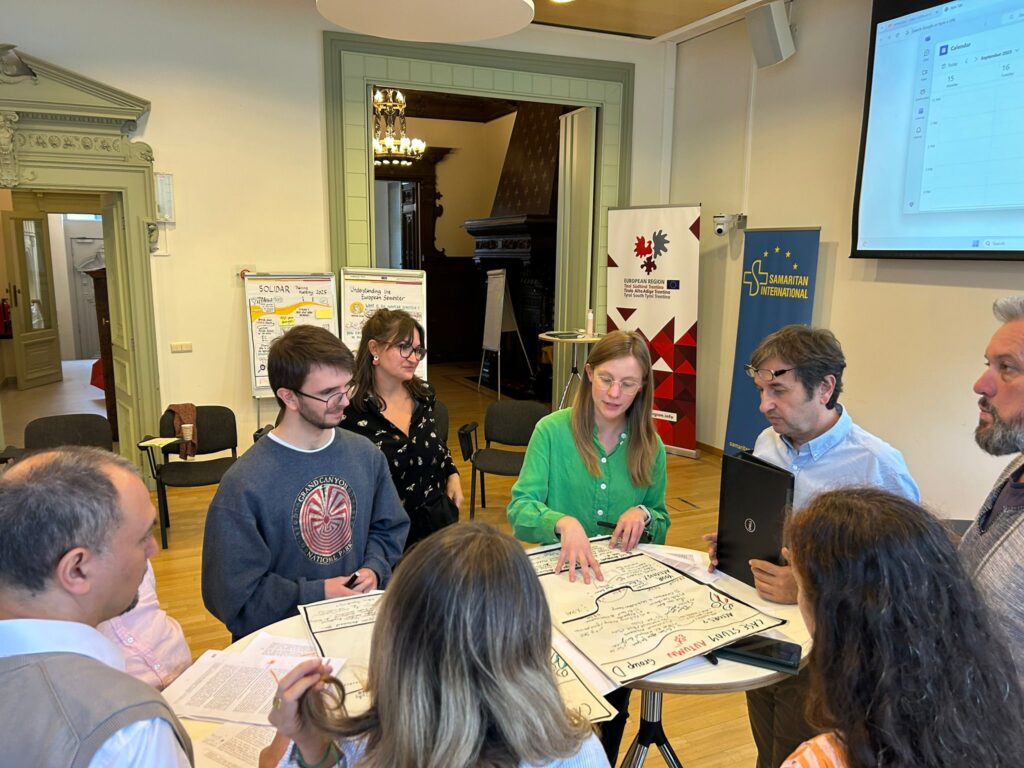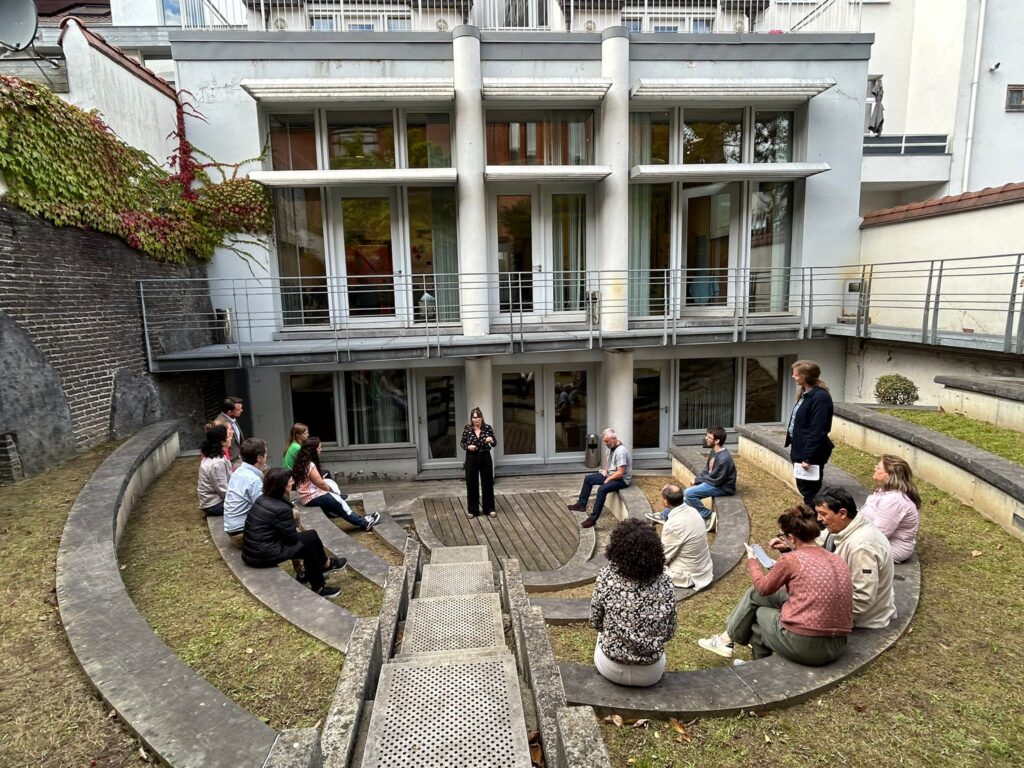Training Academy 2025: Understanding and Engaging with the European Semester
SOLIDAR’s Training Academy 2025 took place on 17–18 September in Brussels, under the title “Understanding and engaging with the European Semester”.
Co-organised with Samaritan International and hosted at the Representation of the European Region Tyrol–South Tyrol–Trentino, the Academy brought together members from across our network for two days of intensive training, exchange, and strategy building on one of the most influential, yet often misunderstood, EU governance processes: the European Semester.
Why the Semester matters for civil society
The European Semester is the EU’s annual cycle of economic and social policy coordination. Though highly technical, it has profound implications for social rights, welfare systems, education, and labour markets. Increasingly, access to EU funding, including the Recovery and Resilience Facility, is tied to compliance with Semester outcomes.
For civil society organisations (CSOs), understanding this process is extremely important. It is an opportunity to make sure social priorities and rights are not sidelined by fiscal and economic concerns. The Training Academy provided members with the tools to read and follow the Semester critically, engage at the right moments, and connect EU-level processes with national struggles for social justice.
Day 1, From austerity to recovery
The first day opened with Professor Amandine Crespy, who guided participants through the history, structure, and evolution of the Semester. From its austerity-driven origins to the “socialisation” processes begun under the Juncker Commission and the embedding of the Recovery and Resilience Facility, the Semester has been a moving target for social actors.
A debate on whether the Semester is a “curse or cure” captured the tensions between fiscal constraints and the need for social investment.
In the afternoon, Katja Reuter (Social Platform) and Andrei Frank (Lifelong Learning Platform) shared how their organisations engage with the Semester. They highlighted both the critical entry points for influence, such as the Joint Employment Report within the Autumn Package and the Country Specific Recommendations under the Spring Package, and the challenges of CSOs’ limited capacity, fragmented Commission consultations, and the persistent imbalance between economic and social priorities.
Andris Berzins (Latvian Samaritans) brought a concrete national perspective, showing how CSOs can participate in Commission stakeholder meetings and push for social concerns to be reflected in Country-Specific Recommendations (CSRs).
The day closed with a simulation exercise, where participants worked on case studies to practice defining timelines, analysing Semester documents, and identifying the right actors to engage.

Day 2, Dialogue with the Commission and building our strategy
The second day began with a hands-on session with Alina van Brugera, Policy Officer at DG EMPL.
Her key messages to CSOs were clear:
- “Always think about how to advocate, not how to educate.” Reports must be written with the Commission reader in mind.
- Use the Commission’s own language, data, indicators, and EPSR headline targets for 2030, to get attention.
- The Commission relies on CSOs to put pressure on Member States to give relevance to social priorities.
- Commission Representations in Member States as crucial entry points.
This intervention was followed by SOLIDAR’s session on the network’s advocacy strategy. Carlos Roldán Mejías, Martina Corti, and Mikael Leyi presented how SOLIDAR intends to strengthen its work on the Semester: building capacity in the network, structuring engagement, and launching a “Shadow European Semester” to systematically feed members’ priorities into key Semester documents.
Upcoming milestones include the BRIDGE project results, SOLIDAR’s reaction to the Autumn Package, and the gradual implementation of this new advocacy strategy in 2026.
Shared learnings and next steps
Across both days, participants underlined the need to:
- Demystify EU processes so that (national) CSOs can act confidently.
- Develop a toolkit (produced by Visuality) with practical advocacy guidance, visual aids, and links to key documents, translated into national languages.
- Connect national advocacy to EU policies, recognising that what happens in Brussels shapes national budgets, reforms, and ultimately, people’s lives.

Closing the Academy, SOLIDAR Secretary General Mikael Leyi reaffirmed our role as advocacy partners:
“We want to make EU policymaking processes accessible. It is not rocket science, it is a matter of translation and sharing information. Our goal is to be precise and selective, to deliver outputs with specific objectives and real impact.”
Background
The SOLIDAR Training Academy is an annual capacity-building opportunity for members to deepen their understanding of EU policy processes and strengthen their advocacy capacity. It is organised as part of the programme “Realising a Social Europe for All”, funded by the EaSI strand of the ESF+.


